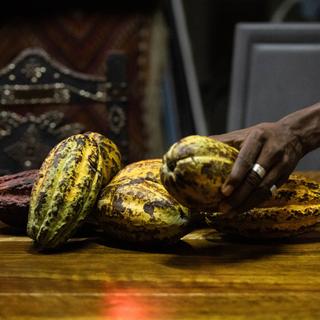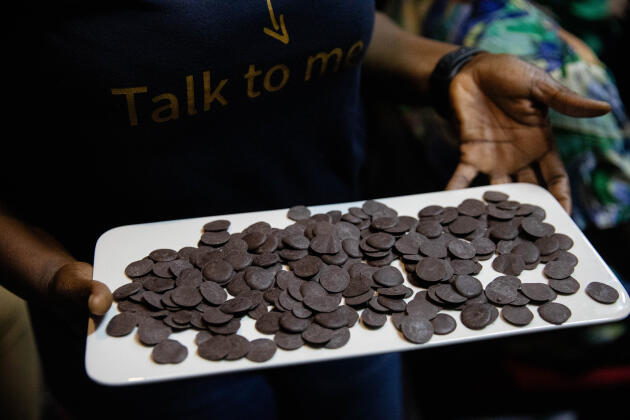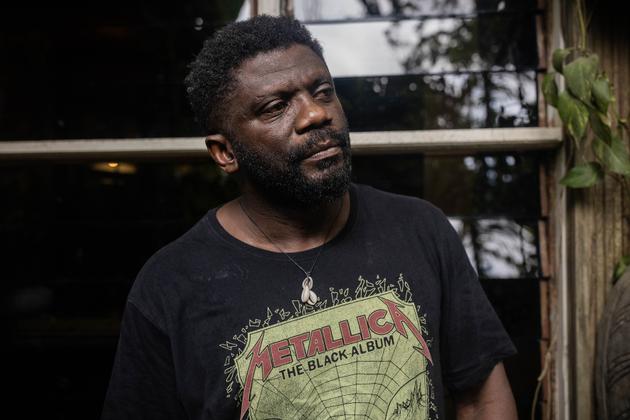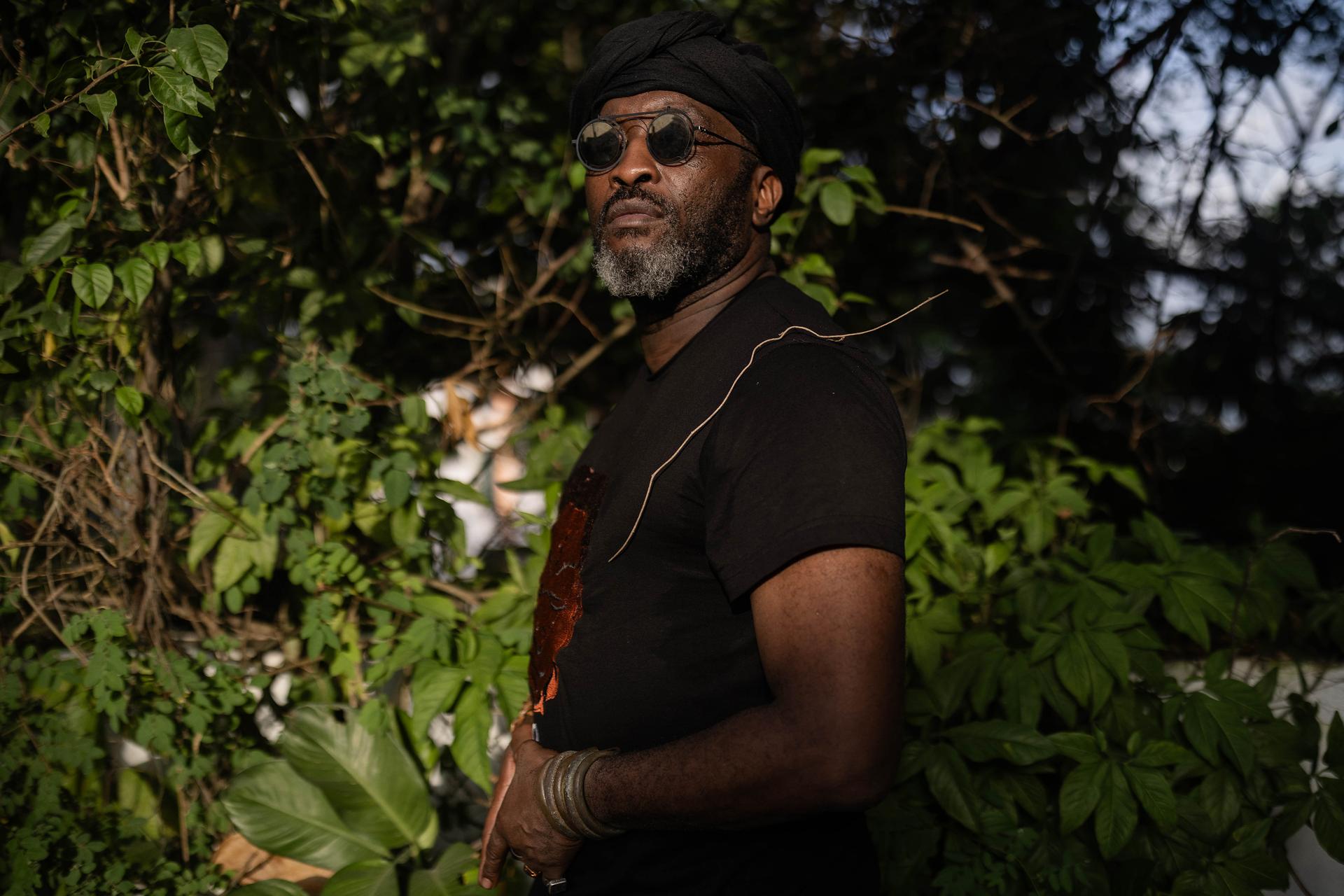


In Abidjan, Ivorians want to 'decolonize' chocolate
FeatureAlthough Côte d'Ivoire supplies 45% of the world cocoa market, it has just 24 chocolate makers. Among them is Alain Kablan Porquet, who wants to usher in a new era of influence and power for cocoa-producing countries.
The Bushman Café in Abidjan always smells like cocoa, but its perfume was particularly potent one day in the small meeting room on the first floor. A few petroleum-black chocolate discs were laid out on trays, offered for tasting to the dozen or so privileged guests who had been invited by Alain Kablan Porquet, the establishment's owner and an artisan chocolatier at the head of the Cocoaïan cooperative.
But be careful, you don't bite into a 92% cocoa chocolate like an industrial chocolate bar. "Put the chocolate in your mouth and crunch very lightly to release the flavors," said Kristen Hard, a multi-award-winning American chocolatier and CEO of the high-end boutique Cacao Atlanta. "Then let it melt on your tongue. You can inhale at the same time to fully take in the flavors." With a solemnity similar to a wine tasting, one after the other, invitees tasted Ghanaian and Ivorian chocolates, from FairAfric and Cocoaïan, whose cocoa content amounts to 75 or 92%.
These little discs, with their delicate notes of flowers or fruit, are the first samples of a greater ambition: transforming a cocoa-producing nation into a chocolate-producing nation. The paradox is well known: Côte d'Ivoire alone supplies 45% of the world cocoa market, but half the beans are exported raw and almost all the rest in the form of semi-processed products.

There are only 24 chocolate makers in Côte d'Ivoire, half as many in Ghana. To expand the market – Porquet aims to increase their numbers tenfold over the next few years – he brought together Ghanaian and Ivorian players in the cocoa industry from November 2 to 4, just as the Salon du Chocolat was coming to a close in Paris. The immediate goal was to create a new, specifically African chocolate competition, the World Chocolate Initiative Competition, which is scheduled to be held for the first time in mid-2024.
Ultimately, the aim is to launch a debate on the chocolate production standards set by European markets and to usher in a new era of cocoa production, in which power would return to producer countries. This comes at a time when the price of brown gold broke new records on the London and New York stock exchanges on October 30, thanks to the current quarter's poor harvest, which could turn out to be almost 30% less than last year's.
'Chocolate is culture!'
"Chocolate is not a consumer product," thundered Gauz on the low sofa reserved for the invited speakers at the Bushman Café. "It's pure thought, pure intellect! It's culture!" In front of a small audience of journalists, industrialists and researchers, the Ivorian writer, author of the book Cocoaïans (2022), said angrily: "Cocoa is not a native plant. It was imposed on us by a European bourgeois whim. Cocoa is an issue of civilizational thought, the site of a confrontation between African peasants, who produce this cocoa while destroying their ecosystem, and the hyper-bourgeoisie, who invented the taste of chocolate and imposed it through violence."
The 2.4 million tons of cocoa that leave the fields of Côte d'Ivoire every year are described by Gauz as "2.4 tons of misfortune!" "The first crime we committed – a collective one – was to have perpetuated the colonial economic system. Coffee, cocoa, rubber, palm oil ... there's nothing new being produced here! This is the idea that needs to be put back at the heart of the debate. We need to rethink a class relationship, a relationship of domination."


To reverse this relationship, Porquet advocates for "the non-nomadization of food." Between two workshops, he settled into a corner of the Bushman Café, on a Louis XV armchair said to have belonged to Valéry Giscard d'Estaing. "We want everything to be made locally," he explained, "like wine or haute couture. We can move away from the role of supplier of raw materials and market a high-quality finished product, for both local use and for export."
This is because he is convinced that the alkalinization systematically practiced by chocolate manufacturers "kills" cocoa. "Potash is designed to level out the taste. It removes bitterness, astringency and acidity. But if there's a need for that, it's because there was a fermentation problem from the start!" His intention is to buy freshly harvested cocoa pods directly from farmers in Ivory Coast so that he can do the shelling, fermentation and drying himself. The producer saves time and money (Cocoaïan buys the beans above the fixed minimum price), and the chocolate maker retains control over his raw material from the outset. In other words, the Cocoaïan company is able to produce "fine cocoa" from Forastero pods, the variety grown in West Africa.
'It's a niche market that's opening up.'
The Ivorian chocolate maker has seized on a fermentation method invented by Dutch consultant Albertus Eskes, a former researcher at the Centre de Coopération Internationale en Recherche Agronomique pour le Développement (CIRAD, International Agronomic Research Cooperation Center), who, by his own admission, was "married to cocoa for 53 years." His "Anima" technique, developed in Brazil from 2015 to 2019 and recently applied by some producers, including Cocoaïan, eliminates bitterness and astringency from the bean without artificial alkalinization, but with guaranteed effectiveness on any cocoa variety. It's a simple, inexpensive method," confirmed Eskes. "It can be applied by any farmer, anywhere in the world, without the addition of laboratory-grown yeasts, but simply with crates of fruit."

Far from wanting to protect their secret, Porquet and Eskes invited government representatives to convince them to deploy the method on a large scale. Beyond the competition, the aim is to establish national certification for cocoa production, based on the implementation of Anima fermentation. The Conseil Café-Cacao (CCC, Coffee-Cocoa Council) was present on the first day for discussions behind closed doors, and the CNRA on the following days.
Enthusiastic cocoa breeder and CNRA research coordinator Mathias Tahi plans to meet with the CCC soon to share his observations and, perhaps, launch a nationwide public-private partnership. "The world needs to know about Côte d'Ivoire's great capacity to produce quality cocoa," he said. "For us, it's a niche market that's opening up, with far greater added value for the entire industry." The certification also involves a small revolution: full price transparency. Farmers will know the price at which the chocolate produced from their beans is sold."
